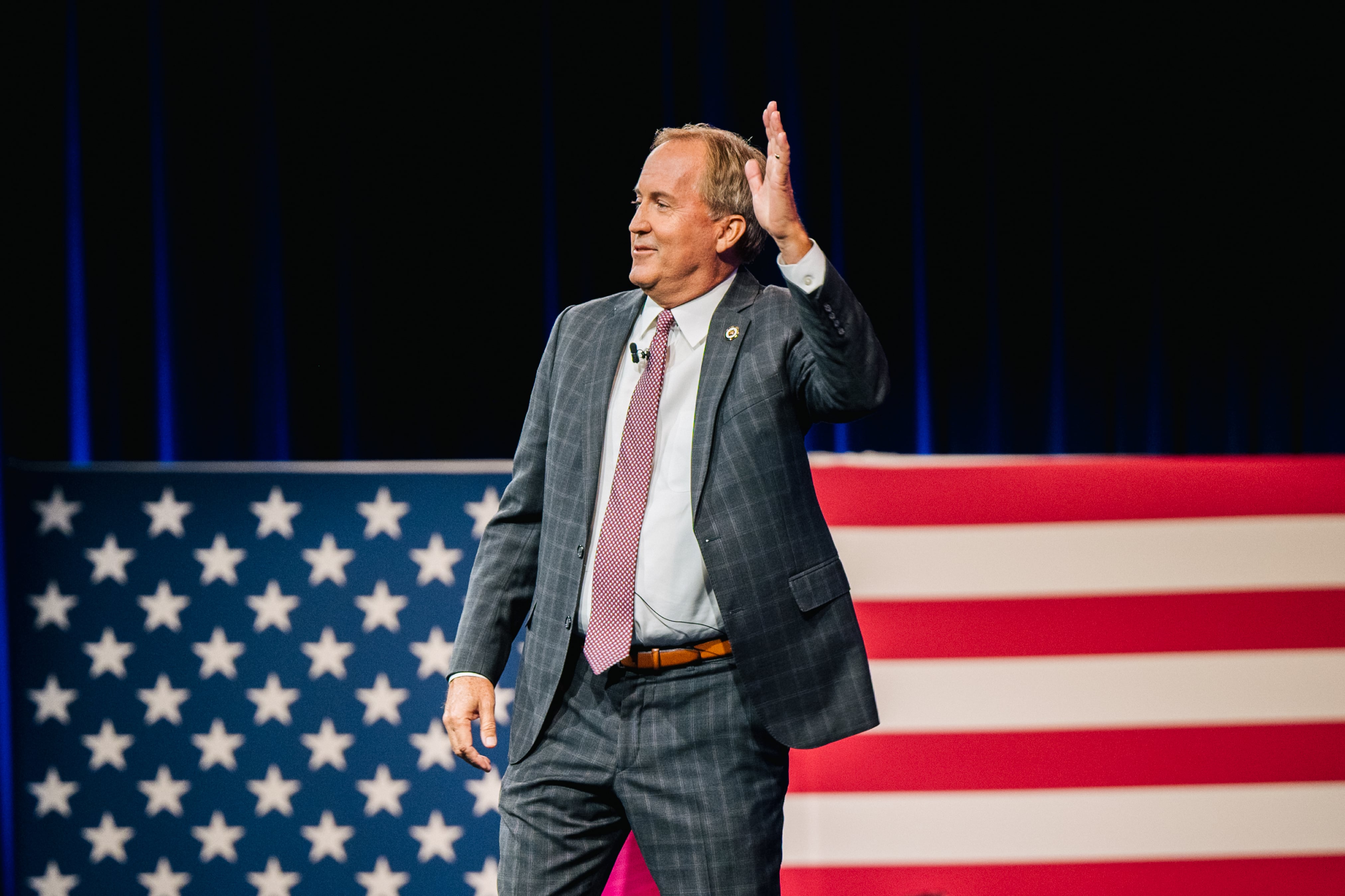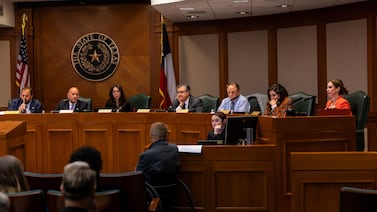This article was first published by The Texas Tribune, a nonprofit, nonpartisan media organization that informs Texans — and engages with them — about public policy, politics, government and statewide issues.
Travis County officials sued Attorney General Ken Paxton and Secretary of State Jane Nelson on Tuesday over the state’s attempt to block attempts to sign up more voters ahead of a hotly contested presidential election.
The new federal lawsuit escalates a pre-election war between Republican state officials and Democratic urban county leaders over voter registration efforts and accuses Texas officials of violating the National Voter Registration Act. Developments in the ongoing battle continue unfolding as the Oct. 7 deadline to sign up to vote looms.
“Today, Travis County, once again, fights back,” Travis County Attorney Delia Garza said during a press conference Tuesday.
Paxton’s office didn’t immediately respond to requests for comment Tuesday.
The federal suit is in response to Paxton turning to state courts to try and block the county from mailing out voter registration applications to people identified as eligible voters who aren’t currently on the rolls. Travis County is home to Austin and has long been a Democratic stronghold in the state.
Paxton’s lawsuit argued that the Texas Election Code did not grant a county officials the ability to collect information about private citizens to convince them to vote and claimed that such an effort is illegal. But Democrats, local leaders and election experts disagree with Paxton’s interpretation of state law.
In interviews with conservative personalities and on social media, Paxton has also pushed false accusations that President Joe Biden and Vice President Kamala Harris intentionally allowed undocumented immigrants into the country so that they can vote for Democrats. Former President Donald Trump, the GOP presidential nominee this year, has repeated similar claims, including during this month’s presidential debate against Harris, the Democratic nominee.
Paxton has argued that mailing voter registration applications could lead to ineligible voters signing up to vote. Voter registration applications are returned to county offices and are reviewed to confirm eligibility. The Secretary of State’s Office also verifies eligibility.
“Travis County has blatantly violated Texas law by paying partisan actors to conduct unlawful identification efforts to track down people who are not registered to vote,” Paxton said in a statement earlier this month. “Programs like this invite fraud and reduce public trust in our elections. We will stop them and any other county considering such programs.”
Jeremy Smith, the CEO of Civic Government Solutions, the company contracted by Travis County to identify unregistered voters, also denied that his organization engaged in partisan tactics in identifying eligible voters who haven’t yet signed up to cast a ballot in November.
“All of our contracts, 100% of them, are nonpartisan. It is written in,” Smith said. “We are under restrictions and obligations to prove that and maintain that and provide that data for accountability back to all of our clients.”
Garza said the new legal filings transfers Paxton’s state lawsuit to federal court. Travis officials are asking the federal court to allow them to continue sending out voter registration applications. The filing came one day after a judge denied Paxton’s request to block Bexar County, home to San Antonio, from mailing out voter registration applications to its residents. The court found no reason to grant the request since the county had already mailed out the forms. Bexar County is also strongly Democratic.
Travis officials allege Paxton violated Title 52 of the Voting Rights Act by trying to prevent them from carrying out their duties to promote people’s right to vote. They accuse Nelson of doing nothing to stop Paxton’s alleged unlawful conduct. They argue that the state law not only allows them to send out the applications, but also encourages them to do so.
Nelson’s office did not immediately respond to requests for comment Tuesday.
Garza pointed out that a state law provision states that local governments can be reimbursed for mailing out voter registration applications to its residents.
“Travis County was going about its business serving the citizens of our community and dutifully complying with federal and state election laws,” said Travis County Judge Andy Brown.






